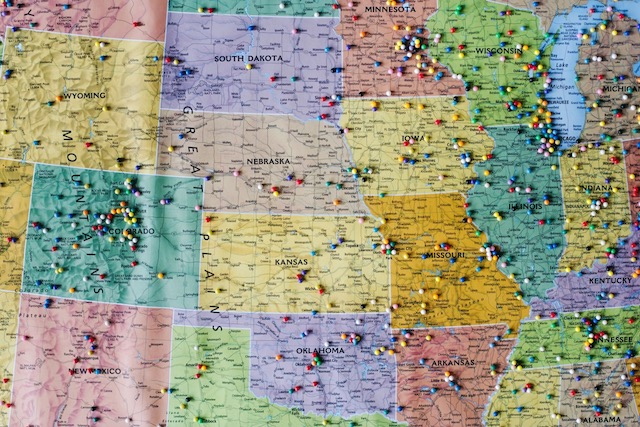Today, savvy e-commerce businesses strive to understand their customers’ needs and shopping habits and meet them on their own terms. That often means that in addition to selling on your company’s website, it makes sense to become a third-party seller on marketplaces like Amazon and eBay. The good news is that, for most states, these marketplace facilitators are required to collect and remit sales tax on your behalf — but unfortunately, that doesn’t mean you can just forget all about sales tax when you sell on marketplaces. In fact, you need to pay close attention to what you’re selling and where, as in many states, what you sell on marketplace facilitators will impact your economic nexus threshold. We’ll explain.
The Supreme Court ruling South Dakota v. Wayfair was the driving force behind states instituting more collection power for interstate transactions. As a result, many states created clear economic thresholds for when a business needs to collect sales tax, whether or not it has a physical presence in the state. It’s typically dependent on the total number of transactions or total revenue — otherwise known as nexus. Businesses pay close attention to these nexus thresholds to know when they need to start collecting sales tax in each state. For a refresher on whether or not your business has economic nexus in a given state, here’s a helpful guide for the number of transactions and/or gross sales required to hit nexus in all states.
But what about when market facilitators are doing the collecting and remitting for you? Does it count towards this nexus threshold?
You might assume that because sales tax is collected and remitted for those transactions, it would count towards your economic nexus threshold in the customer’s state. But marketplace facilitator laws are different in every state, which means that economic nexus is different, too. Let’s take a closer look.
Pay attention to economic and physical nexus thresholds
Even though it’s the responsibility of the marketplace facilitator to file and remit taxes for the purchases through their marketplace, it doesn’t mean it’s not critical to keep track of those sales. That’s because those sales may or may not count towards your nexus threshold, depending on the state. And it’s up to your company to keep track of those that do and do not.
As of November 2021, 20 states do not count sales from marketplace facilitators towards a company’s economic nexus, including Colorado, Florida and Georgia. (For a full list of states, this chart from the Sales Tax Institute is worth a look.)
States like California, Connecticut, New York and 23 others do count marketplace facilitator sales towards the threshold, but many states have additional rules and guidelines, and those laws and administrative rules are subject to change. It’s often helpful to consult a tax professional for answers about specifics.
Automation is one solution
If you’re selling to customers in nearly half the states (like California, New York, and many, many more) through a marketplace facilitator, keeping track of whether or not you have economic nexus is critical to staying compliant. It requires a serious vigilance to perform this manually, what with 46 different sales tax nexus laws, 11,000 taxing jurisdictions, and the ever-changing laws.
Automating your sales tax through a trusted solution increases efficiency and accuracy, but also allows you to focus on what’s most important: running your business. With TaxJar, you can swap the hours you’d spend navigating multi-state payment processes with automatic monthly reports, on-time filings, and friendly support when you need it the most. Start a free 30-day TaxJar trial today.



